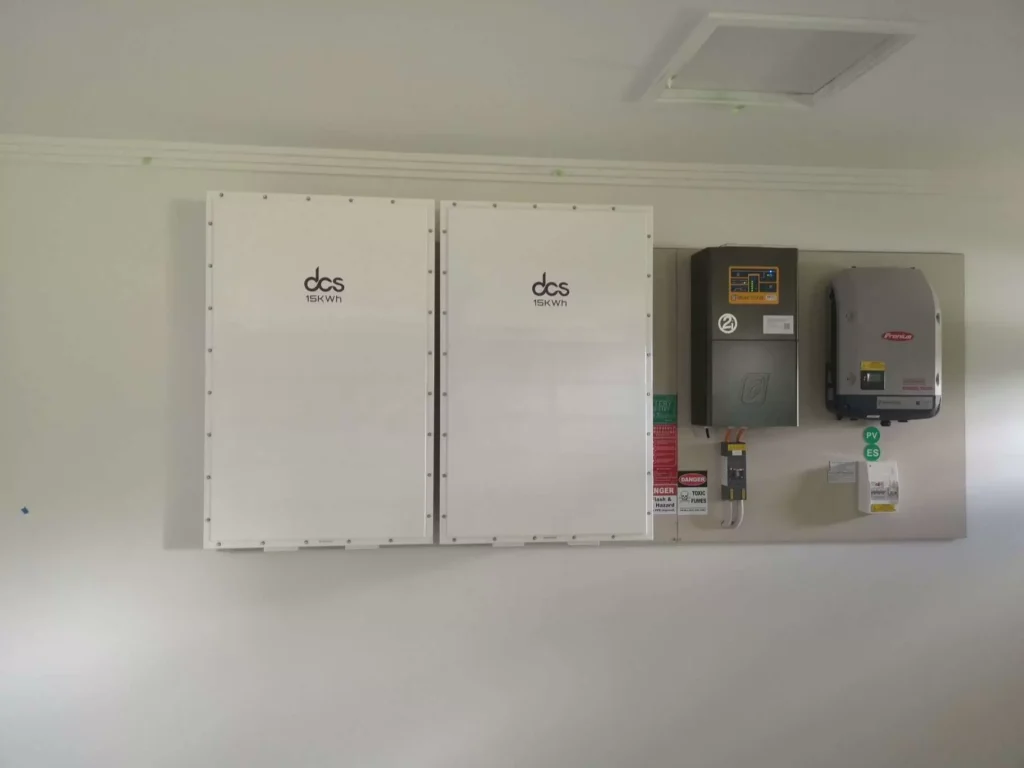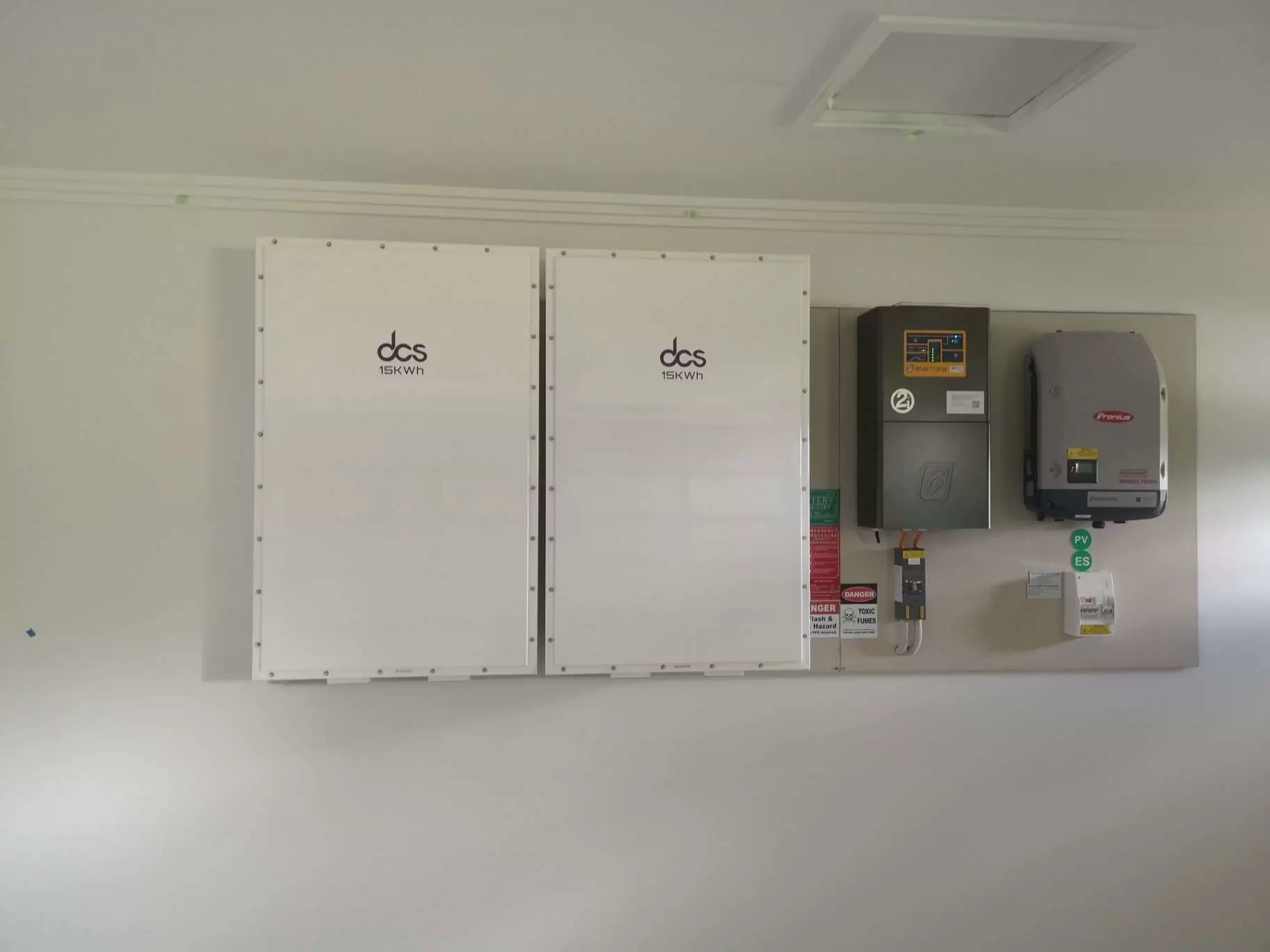In today’s rapidly evolving energy landscape, the push for more sustainable and efficient power solutions is more prominent than ever. Among these, the solar system stands out as a beacon of innovation, offering homeowners a way to harness the power of the sun like never before. Home Solar Battery System is an eco-friendly solution that allows you to harness renewable energy and reduce your reliance on the traditional power grid. By integrating it into your household, you can attain substantial savings and promote sustainable living.
Advantages of Energy Storage Systems
The introduction of energy storage systems, particularly solar battery systems, into the residential sector has transformed the way homeowners manage and utilize energy. These systems offer a seamless solution for capturing excess solar energy during peak production hours and storing it for use when solar generation is not possible, such as during nighttime or on overcast days. This capability ensures that homeowners can maximize the use of solar energy generated by their panels, leading to a significant reduction in dependency on the electrical grid.
An essential advantage of these storage systems is the optimization of energy consumption. By intelligently managing the flow of solar energy, these systems can supply electricity during peak demand periods when energy from the grid is most expensive. This peak shaving technique can result in considerable cost savings over time, as homeowners can avoid high energy prices and reduce their overall energy bills.
Moreover, energy storage systems enhance the reliability of solar energy. While solar panels alone can offer significant energy production, their output is directly affected by weather conditions. Solar battery systems bridge this gap, providing a consistent and reliable energy source regardless of external factors. This reliability is crucial for maintaining power during emergencies or grid outages, offering homeowners peace of mind that they have a dependable energy supply.
Maximizing Energy Independence and Security
One of the standout advantages of integrating a solar system into your home is achieving an unmatched level of energy independence. This system enables you to produce, store, and manage your electricity, effectively making you less reliant on external power suppliers. The independence gained through this self-sufficiency shields you from unpredictable energy prices, reliance on the conventional power grid, and its associated vulnerabilities.
This autonomy is particularly crucial in times of unexpected power outages or natural disasters, providing a steady and reliable energy source when it’s needed most. Furthermore, a solar system secures your energy supply by allowing you to control when and how your stored solar energy is used, optimizing your home’s energy efficiency and reducing overall consumption.
This control not only ensures a constant energy supply but also fortifies your home against the broader challenges of energy security faced by relying on traditional energy sources. In essence, adopting a solar battery system enhances your home’s resilience to fluctuations and shortages in the energy market. It becomes an empowering tool that grants homeowners greater freedom, self-sufficiency, and security in managing their power needs.
Contributing to a Greener Planet by Reducing Carbon Footprint
Opting for a solar system is a pivotal step towards environmental stewardship. Solar power, devoid of harmful emissions, stands in stark contrast to the pollution associated with burning fossil fuels. The integration of solar batteries into your home’s energy system ensures that every kilowatt of solar energy is maximized, dramatically reducing the need for energy derived from non-renewable sources.
This shift not only diminishes the household’s carbon footprint but also contributes significantly to the broader fight against climate change. By leveraging the sun’s plentiful energy and storing it for future use, homeowners play a crucial role in promoting the use of clean, renewable resources. Indeed, a home solar system is like having your personal energy station, enabling you to take full control over your energy consumption. It offers a reliable backup, ensuring uninterrupted power supply, thus empowering homes to be less dependent on the traditional grid.
This commitment to solar energy underscores a collective move towards sustainable living, helping to preserve the environment for future generations. Investing in a solar system is an impactful, tangible way for households to join this movement. By choosing renewable energy over fossil fuels, each homeowner actively shapes a more sustainable future.
 Increasing Property Value with Modern Technology
Increasing Property Value with Modern Technology
Installing a solar system is not just a step towards energy efficiency and environmental sustainability; it significantly elevates your home’s market appeal and financial worth. In a real estate market that increasingly values green technology, homes outfitted with such systems are a hot commodity. Buyers are often ready to pay more for properties that promise reduced utility costs and ecological footprints, positioning solar-powered homes as an attractive investment.
This modern technology not only demonstrates a commitment to sustainable living but also signals to potential buyers that the home is forward-thinking, equipped with cutting-edge solutions to future energy needs. As the demand for environmentally responsible housing solutions grows, incorporating a solar ery system becomes a strategic upgrade that enhances property desirability, setting it apart in the competitive real estate market.
Additionally, this smart investment in renewable energy technology serves to future-proof your home against rising electricity costs and fluctuations in energy supply, securing long-term energy autonomy. Solar systems further provide an opportunity for homeowners to make the most of government incentives and rebates, driving down the overall cost of implementation.
Long-term Savings for Your Home
The upfront expense of a solar system may initially appear significant, yet it paves the way for substantial financial gains in the long run. By generating your own power, reliance on the grid diminishes, ushering in a reduction of utility bills. This decrease in dependency not only translates into immediate savings but also insulates homeowners from future energy price hikes, ensuring economic benefits that extend for years.
Additionally, the presence of various governmental incentives designed to encourage solar adoption ranging from rebates to tax deductions further amplifies the financial attractiveness of solar systems. These incentives not only help mitigate the initial costs but also underscore the economic viability and reward of transitioning to solar energy.
With each passing year, the savings accrued from lower utility bills contribute significantly towards recouping the initial outlay, affirming the solar system as a financially prudent choice for homeowners. This establishes the solar system not just as an environmentally friendly investment, but also as a long-term wealth management strategy. Consequently, every homeowner must consider this rewarding switch to solar power for economic benefits that only multiply over time.
Understanding the Solar Battery System
At the heart of every solar battery system are the solar panels, battery storage, and an inverter, essential for transforming the sun’s energy into electricity that can power a home. Solar panels play a crucial role by absorbing sunlight and converting it into electrical power. This electricity, however, is generated in direct current (DC) form, which is where the inverter comes into play.
The inverter’s job is to convert DC into alternating current (AC), the type of electricity needed to run household appliances and devices. The battery storage component is key for retaining any excess energy produced, allowing for its use during times when the sun isn’t shining, such as during the night or on cloudy days.
Modern solar battery systems are also equipped with sophisticated technology that enables efficient monitoring and management of energy consumption, giving homeowners the power to optimize their use of solar energy. This intelligent integration of components ensures that the system not only meets the immediate energy needs of a home but also contributes to a sustainable energy solution by storing and utilizing solar power efficiently.
Preparing for the Future of Energy Consumption
The adoption of a solar system places homeowners at the forefront of the renewable energy revolution. As global initiatives increasingly back the transition towards cleaner, more sustainable power sources, the integration of such systems into residential settings signifies not only a commitment to environmental preservation but also a strategic move to align with future energy norms.
This proactive approach ensures that homes are not only compatible with forthcoming energy advancements but also stand to benefit from the evolving landscape of energy policies and incentives. By equipping your home with a solar system, you are effectively future-proofing your energy needs, readying your household for a new era where renewable energy dominates the market and sets the standard for residential energy consumption.
This readiness affords homeowners peace of mind, knowing their energy setup is both contemporary and designed to adapt to the changing tides of energy technology and sustainability goals. Moreover, as technology progresses, homes equipped with solar battery systems can utilize innovative features such as smart-grid connectivity and advanced power storage options, offering enhanced functionality and optimization.
Embracing Quiet and Clean Energy Production
Opting for a solar system signifies a shift towards tranquility and environmental respect. The stark contrast between the disruptive noise of conventional fuel-based generators and the silent operation of solar panels is profound. This silence in operation extends beyond mere convenience, reflecting a deeper appreciation for peaceful living environments. Additionally, the process of generating electricity from the sun, devoid of emissions or pollutants, underlines a commitment to clean energy production.
By integrating a solar system into your home, you’re not only selecting an energy solution that is free from noise pollution but also one that actively reduces environmental harm. This choice aligns with broader societal movements towards sustainability and ecological responsibility, highlighting the importance of adopting energy solutions that benefit both our immediate surroundings and the planet at large.
By installing a solar system, not only will you save on energy costs in the long run, but you will also actively participate in combating climate change by reducing reliance on fossil fuels. This modern energy solution ensures we pass a healthier and safer planet to the generations that follow. Moreover, by storing the sun’s power in a solar system, you can ensure a consistent energy supply for your home, even during night-time or cloudy days, further enhancing its effectiveness and reliability. It’s an efficient way to use and manage energy, whilst also investing in a renewable future.
FAQS
Q: Can A Solar Battery Power My Home During A Blackout?
A: Yes, a properly sized solar battery can provide power during outages, keeping essential appliances and systems running smoothly.
Q: How Long Does A Solar Battery Last?
A: Most solar batteries have a lifespan of between 5 to 15 years. However, advancements in technology are continually extending this timeframe.
Q: Will I Still Receive An Electricity Bill If I Have A Solar Battery?
A: While a solar system can significantly reduce your utility bills, the amount can vary based on your energy consumption and the size of your system. Some users may still receive minimal bills, especially if they’re connected to the grid for backup energy.
Conclusion
Embracing a home solar battery system in your residence provides a myriad of benefits that align perfectly with both current and future energy trends. It marks a significant step towards achieving unparalleled energy autonomy and promotes a substantial decrease in your home’s ecological footprint. Moreover, the financial implications are equally attractive, offering potential for considerable long-term savings and enhancing your property’s value. By investing in such a system, homeowners are not just preparing for a future dominated by renewable energy but are actively participating in the shift towards more sustainable living practices.
| Other Good Articles to Read |
| Blogs-Nation |
| Blogs-Peoples |
| Bryan Smith Blogs |
| intellect blogs |
| the fault in our blogs |
| blogs eu |
| oz forums |
| recruitment blogs |
| zet blogs |
| id blogs |
| Blog Studio legale |
| blogs map |
| Related Business Listings |
| Contact Directory |
| Local Business Profiles |



